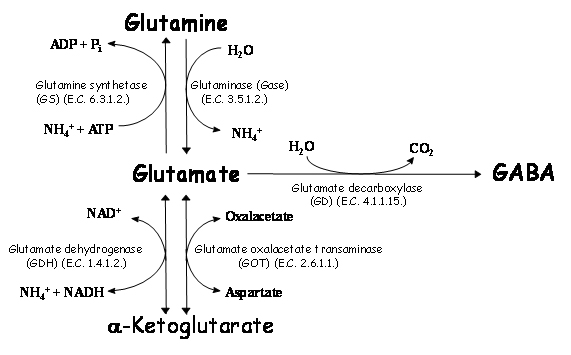Glutamate is one of the most important neurotransmitters in our nervous system and acts as the true fuel for 80% of our synapses.
In addition, it intervenes in the formation of memories, in the management of attention and in the regulation of emotions; it also intervenes in processes as relevant as neuroplasticity, learning, movement, etc.
- Many of our readers may know more about glutamate (monosodium glutamate) in the food industry than about this essential compound that facilitates communication between our nerve cells.
Therefore, it is important to differentiate food glutamate in the form of salt, used as a food preservative or flavor enhancer, from this amino acid synthesized in the central nervous system from glutamine, both in presynaptic neurons and glial cells.
Under normal conditions, glutamate (endogenous) is one of the most abundant amino acids in our body, we produce it from the proteins we consume and it is the main excitatory neurotransmitter.
In turn, as neuroscientists explain, we are faced with an element whose main purpose is to provide energy to the brain.
However, with regard to exogenous glutamate, it is important to note that the idea that it can be dangerous to the health of our brain is well known.
However, as explained in a study conducted at the Center for Nutrition at the Faculty of Medicine at the University of Pittsburg School of Medicine in the United States and published in The Journal of Nutrition, there is no evidence of significant neurological damage as a result of glutamate consumption in the diet. . . However, let’s go a little further on this.
Glutamate is an amino acid whose function in the central nervous system is fundamental: it facilitates and rationalizes communication between nerve cells.
Glutamate is the mediator of a healthy brain. It is not us who say this, but an interesting study conducted at the Institute of Basic Medical Sciences at the University of Oslo, Norway.
In fact, it’s amazing how in recent years new and fascinating discoveries have been made about this amino acid involved in multiple metabolic tasks, so let’s see what its main functions are.
The central nervous system (CNS) is composed of neurons and glial cells (the most abundant), thanks to the synaptic connections that occur between them we can perform functions as basic as cognitive, sensory, motor, etc.
In this complex process, it is glutamate itself that acts as a chemical messenger (neurotransmitter) between cells and neurons after an electrical stimulus.
Thus, and because glutamate is the main mediator of pleasure signals, it is necessary that its concentrations are always correct to perform this task, a deficit would hinder this communication (we would have no energy, so to speak).
An excess, in turn, would have a very detrimental effect on our brain, which would involve the appearance of ischemia, stroke, hypoxia, seizures, etc.
Glutamate is as important for fetal brain development as it is for neuroplasticity during infant and adolescent development, as well as in adulthood, thanks to this amino acid it is possible to perform neuronal differentiation, migration and creation of new connections and, in essence, maintain the good state of the brain.
However, it is also known that in the case of serious diseases, such as Huntington’s disease, Parkinson’s disease and Alzheimer’s disease, glutamate contributes to cell death itself, and changes in its concentrations and functions can also pave the way for this type of chronic neurodegenerative disorder.
A study conducted at Kobe University School of Medicine in Japan, published in the journal Cell Reports, revealed a very important fact: glutamate has a direct relationship with the pancreas, modulating pancreatic beta cell activity to promote insulin production.
So, once again, is the importance of this amino acid revealed to give us l?Energy? And, above all, optimize brain function.
We must remember that the brain cannot extract its energy from lipids, so it needs glucose to perform its main functions, a need that is satisfied by glutamate, this important neurotransmitter.
As we have explained, there is no evidence to support the idea that monosodium glutamate consumption causes neuronal changes, however, it is never entirely necessary to have low control of its consumption, a balanced diet will certainly reduce the risk of health damage.
However, glutamate-associated neurotoxicity does not always come from exogenous factors, it is believed that the root cause is found in different pathological conditions, changes in ionotropic receptors, sometimes genetic or unknown problems, but that activate hypersensitivity associated with glutamate, neurotoxicity and the resulting neuronal death.
Thus, we know, for example, that an excess of this amino acid can cause, as we have already pointed out, ischemia, fetal brain development problems, memory problems, epilepsy, muscle aches, etc.
However, it is important to note that there is a treatment for this and that we have drugs involved in regulating glutamate levels.
In conclusion, we note that studies and research on this very interesting component are currently underway.

